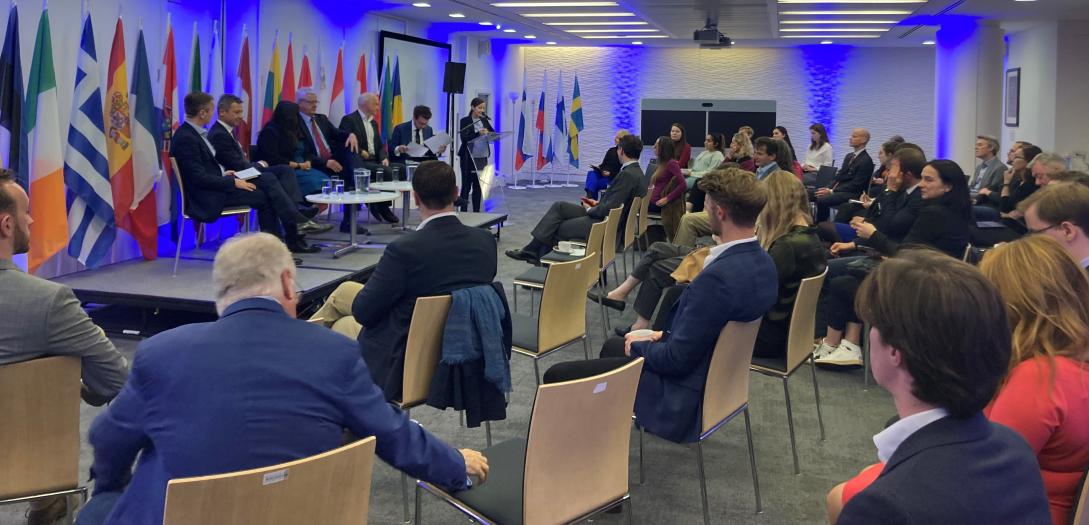Getting back on track - rebuilding resilience in the Travel and Transport industries…

|
Bringing voices from policy and industry together, this timely event’s panel included Pierpaolo Settembri, Head of Unit for Coordination and Planning at the European Commission's DG Move and industry representatives; Simon McNamara of the International Air Transport Association (IATA), Bob Schumacher from United Airlines and Christopher Snelling, Policy Director at Airport Operations Association (AOA) and Rhea Chatterjee of the International Transport Workers’ Federation (ITF). Anchored on exploring how the Transport and Travel community reacted to, and rebounded from, the challenge of a global pandemic, the wide ranging discussion, moderated by the Travel and Transport Correspondent of The Times, Ben Clatworthy, soon moved on to the brand new wave of challenges posed by the war in Ukraine and the ongoing difficulties of energy costs and staff shortages across all sectors of the industry.
As Noura Rouissi, first secretary at the Delegation reminded in her introduction, and Pierpaolo Settembri expanded on, the EU has played a vital role in reacting to the unprecedented impact of the pandemic on the travel and transport industries. Pierpaolo spoke through the EU Commission’s experiences in drawing up the EU Contingency Plan for Travel, and about how the lessons from both the pandemic and the War in Ukraine have shaped policy. While Simon McNamara was critical of the closure of international borders and believes the severe economic damage done will last for years to come. Simon named the lack of multilateral cooperation as a real frustration, and was, however, thankful that not more airlines went bankrupt during the pandemic. Speaking from the point of view of the sector’s workers, Rhea Chatterjee explained they felt the Covid-19 restrictions acutely not only in terms of redundancies and lack of sector-specific government support, but in the consequential hostilities from customers – reminding the audience of the abuse workers experienced for implementing the sometimes contradictory and confusing Covid regulations.
Looking to the current set of challenges, namely the Russia-Ukraine war, difficult economic outlook, increased fuel prices, meeting environmental goals and industry debt: Christopher Snelling pointed out that whatever the outlook sustainability remained an immovable top priority. Pierpaolo Settembri explained that passengers are currently unwilling to pay more for environmental offsets but younger generations appear to buck this trend and stressed that sustainable transport is high in the Commission’s agenda as part of the Green Deal objectives implemented notably in the Fit for 55 package. Bob Schumacher assessed that the challenge of decarbonising the industry is in part a communications challenge: if airlines are unable to demonstrate to the public efforts being made to deliver on carbon, problems will only grow. Simon McNamara concurred that there was a natural assumption the travel industry is not part of the solution, so there needs to be a significant push on educating future generations and governments on the important role they play. A closing exchange was driven by Rhea Chatterjee reminding of the central importance of aviation in particular given the reality of global migration – not only will aviation continue to grow and prosper but it remains central to the rights of all, to travel for personal reasons and work in a vital and well regulated industry.
For more on the event itself and the EU Delegation to the UK’s public diplomacy partnership with Aspen UK please see here.
All background on the EU Mobility Strategy available here.
|





